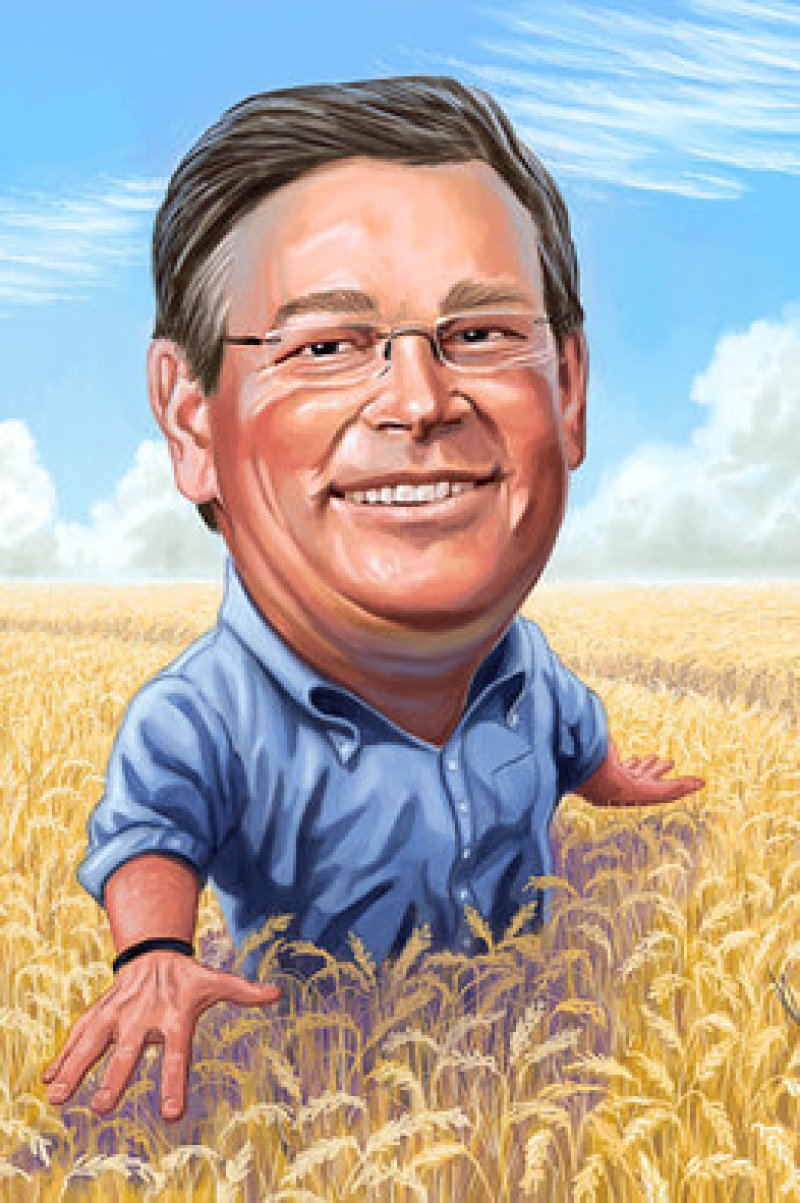Before you can finish typing “Monsanto employees” into Google, the search engine suggests “Monsanto evil.”
The world’s largest-grossing seed seller ranks between one and 15 on any list of the world’s most-hated corporations. The annual “March Against Monsanto,” world-wide protests against genetic modification, drew an estimated two million people in some 400 cities last year.
Caught in this food fight is Brett Begemann, Monsanto’s mild-mannered president and chief operating officer since last October, the son of a farmer who looks like a fellow you’d see winning a produce contest at the state fair.
“The biotech-derived products that we eat are the most highly tested and regulated components in what we consume,” Begemann says. A new seed must be reviewed by the Department of Agriculture.
Then there’s a voluntary check from the Food and Drug Administration. If the GM seed includes insecticides or pesticides, as most do, the Environmental Protection Agency gets a look. It takes about $100 million to get one seed from discovery to market. Crops that are bred conventionally, on the other hand, undergo no government testing. None.
Begemann takes personally the charge that Monsanto is poisoning food.
“It just blows my mind,” he says, “that anybody would ever imagine that I would ever be involved in producing any kind of food that would ever put me, my family or now a grandson at risk.” He adds: “I go to the same grocery store that everybody else goes to.”
He talks about “having a dialogue” and “coming to the table” with those concerned about genetic modification. It remains to be seen if that strategy will quell a backlash based mostly on fear and emotion.
Read full original story: Meet Mr. Frankenfood































